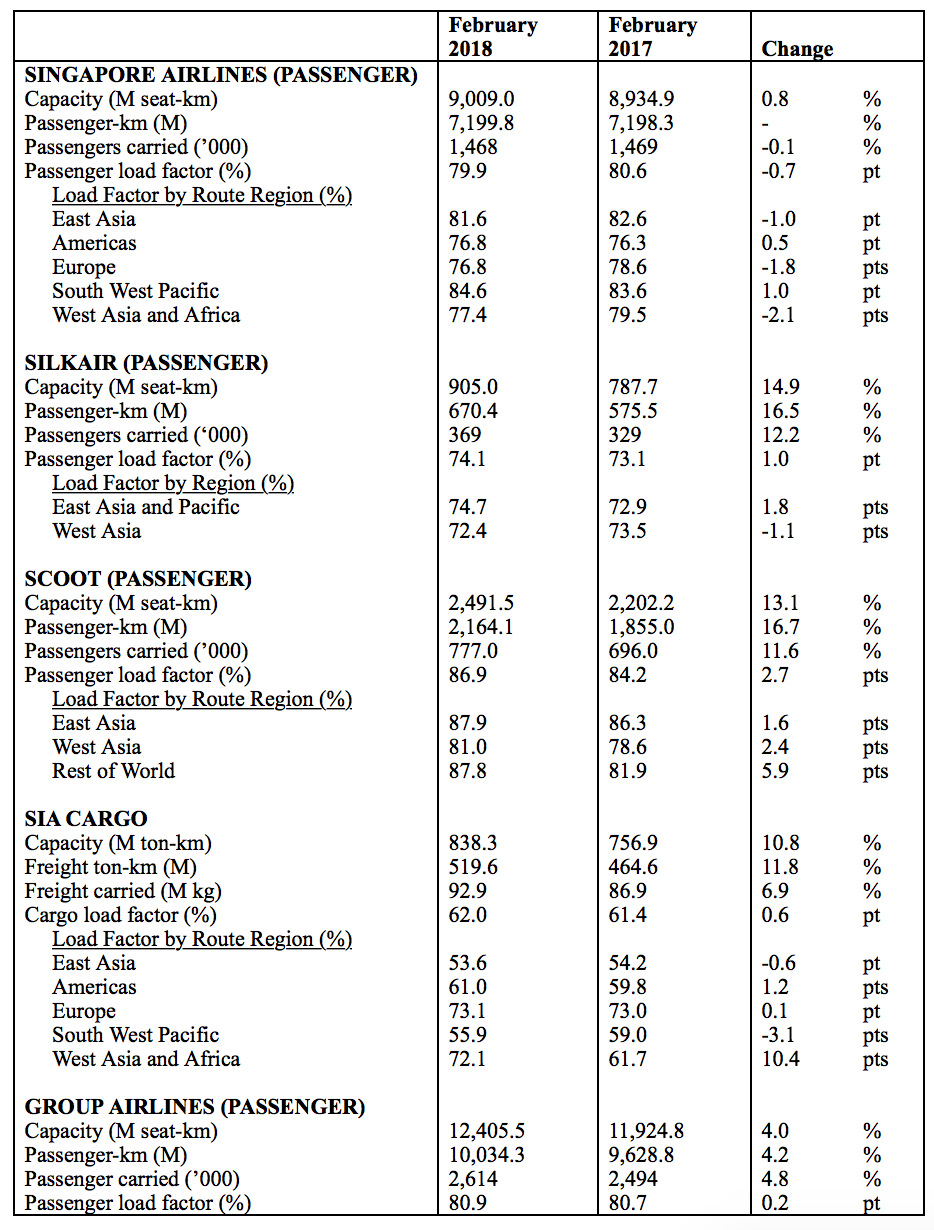
In February 2018, SIA Group airlines' passenger load factor (PLF) improved 0.2 percentage points to 80.9%. Passenger carriage (measured in revenue passenger kilometres) increased 4.2% compared to last year, outpacing capacity (measured in available seat kilometres) injection of 4.0%.
Singapore Airlines' passenger carriage was flat compared to last year, against a 0.8% increase in capacity. Consequently, PLF declined by 0.7 percentage points year-on-year to 79.9%, due to softer demand to Bali (Denpasar) as a result of volcanic eruption threat, and political unrest in Maldives (Male). PLF for Europe declined as capacity growth outstripped demand. The operating landscape remains challenging, with efforts focused on balancing yields against loads, amidst competitive pressures.
SilkAir’s systemwide passenger carriage increased by 16.5%, ahead of capacity growth of 14.9%. Consequently, PLF increased 1.0 percentage point to 74.1%. The improvement in PLF was led by growth in demand in North Asia, which exceeded capacity injection, due to the shift in Chinese New Year to February.
Scoot recorded passenger carriage growth of 16.7%, exceeding capacity expansion of 13.1%. Consequently, PLF rose by 2.7 percentage points to 86.9%. PLF on selected routes to Thailand, India and Australia, as well as fifth freedom routes to North Asia, continued to improve. During the month, Scoot commenced services to Kuantan, its sixth destination in Malaysia.
Overall cargo load factor (CLF) was 0.6 percentage points higher, with growth in cargo traffic (measured in freight-tonne-kilometres) of 11.8% ahead of the capacity increase of 10.8%. CLF improved across most regions, except South West Pacific and East Asia, as demand outpaced capacity changes.
